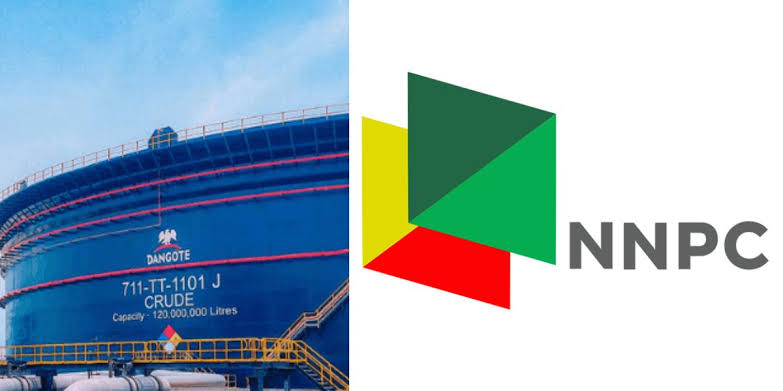
The Nigerian National Petroleum Company (NNPC) Limited has suspended its naira-for-crude oil swap deal with local refiners, including the highly anticipated Dangote Refinery and other private operators. This decision, which took immediate effect, has sparked discussions about its far-reaching implications for Nigeria’s energy sector and the broader economy.
The naira-for-crude arrangement, introduced on October 1, 2024, allowed domestic refiners to purchase crude oil in naira instead of dollars. The initiative aimed to support local refining capacity, reduce reliance on imported petroleum products, and stabilize the local currency by easing pressure on foreign exchange reserves.
However, with the termination of the agreement, Nigerian refineries will now have to source crude oil from international suppliers, paying in dollars instead of naira. This shift is expected to escalate operational costs, potentially leading to higher fuel prices at the pump.
Sources familiar with the development revealed that the NNPC informed local refiners that it has already committed its crude oil production to forward contracts, leaving no supply available for domestic refineries. This revelation comes despite reports that Nigeria’s crude output has increased since the deal first began.
The suspension has raised concerns among industry stakeholders, particularly for the Dangote Refinery, which is poised to become one of Africa’s largest refining facilities. The refinery, owned by billionaire Aliko Dangote, has been a key beneficiary of the naira-for-crude deal, relying on locally sourced crude to meet its refining needs. Analysts fear the suspension could delay the refinery’s operational timeline and increase costs.
Other private refiners, including Waltersmith Petroman and BUA Refinery, are also expected to feel the impact. The deal had provided them with a cost-effective way to secure crude oil feedstock, enabling them to compete with international players.
Economists have warned that the suspension could have ripple effects on Nigeria’s economy. The naira has already faced significant pressure in recent months, and the removal of this dollar-saving mechanism could exacerbate the currency’s volatility. Additionally, the move may hinder efforts to achieve self-sufficiency in petroleum production, a key goal of the federal government.
Source : https://businessday.ng/








